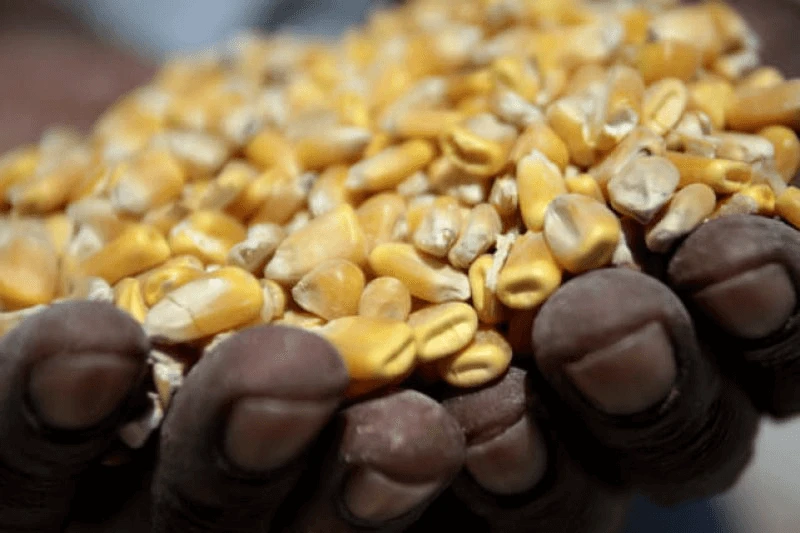50%+ yield boost: Nigeria commercializes four varieties of insect-resistant, drought-tolerant corn
50%+ yield boost: Nigeria commercializes four varieties of insect-resistant, drought-tolerant corn


Nigeria’s government is taking the bull by the horns and exploring various ways by which the nation can put an end to hunger. For the government, agricultural biotechnology has always been recognized as one of the formidable tools for the revival of food production. This recognition is supported by the fact that Nigeria became the first nation in Africa to commercially release the first transgenic food crop, PBR Cowpea, into the market in 2019, leading the way in advancing food security.
[J]ust 3 years later, the Federal Government of Nigeria is taking another big leap forward with the Varietal Release Committee approving 4 new transgenic maize varieties.The new maize varieties are drought tolerant and are resistant to stem-borer and fall armyworm resulting in yield advantage of up to 10 tonnes per hectare under good agronomic practices. The national average for similar hybrids is 6 tonnes per hectare. The varieties are suitable for Rain Forest, Guinea, and Sudan Savannas. Stem-borer reduces maize production in several countries in Africa, while fall armyworm can destroy up to 20 million metric tons of maize in Africa each year, enough to feed 100 million people.
…
Dr Sylvester Oikeh, the TELA Maize Project Manager celebrated the decision by Nigeria by calling on other countries in Africa to act for farmers. ‘I am encouraged by this decision by the Federal Government of Nigeria that reflects their commitment to the needs of farmers.’
This is an excerpt. Read the original post here

 | Videos | More... |

Video: Nuclear energy will destroy us? Global warming is an existential threat? Chemicals are massacring bees? Donate to the Green Industrial Complex!
 | Bees & Pollinators | More... |

GLP podcast: Science journalism is a mess. Here’s how to fix it

Mosquito massacre: Can we safely tackle malaria with a CRISPR gene drive?

Are we facing an ‘Insect Apocalypse’ caused by ‘intensive, industrial’ farming and agricultural chemicals? The media say yes; Science says ‘no’
 | Infographics | More... |

Infographic: Global regulatory and health research agencies on whether glyphosate causes cancer
 | GMO FAQs | More... |

Why is there controversy over GMO foods but not GMO drugs?

How are GMOs labeled around the world?

How does genetic engineering differ from conventional breeding?
 | GLP Profiles | More... |

Alex Jones: Right-wing conspiracy theorist stokes fear of GMOs, pesticides to sell ‘health supplements’




 Viewpoint — Fact checking MAHA mythmakers: How wellness influencers and RFK, Jr. undermine American science and health
Viewpoint — Fact checking MAHA mythmakers: How wellness influencers and RFK, Jr. undermine American science and health Viewpoint: Video — Big Solar is gobbling up productive agricultural land and hurting farmers yet providing little energy or sustainabilty gains
Viewpoint: Video — Big Solar is gobbling up productive agricultural land and hurting farmers yet providing little energy or sustainabilty gains Fighting deforestation with CO2: Biotechnology breakthrough creates sustainable palm oil alternative for cosmetics
Fighting deforestation with CO2: Biotechnology breakthrough creates sustainable palm oil alternative for cosmetics Trust issues: What happens when therapists use ChatGPT?
Trust issues: What happens when therapists use ChatGPT? 30-year-old tomato line shows genetic resistance to devastating virus
30-year-old tomato line shows genetic resistance to devastating virus California, Washington, Oregon forge immunization alliance to safeguard vaccine access against federal undermining
California, Washington, Oregon forge immunization alliance to safeguard vaccine access against federal undermining The free-range chicken dilemma: Better for birds, but with substantial costs
The free-range chicken dilemma: Better for birds, but with substantial costs ‘You have to treat the brain first’: Rethinking chronic pain with Sanjay Gupta
‘You have to treat the brain first’: Rethinking chronic pain with Sanjay Gupta
